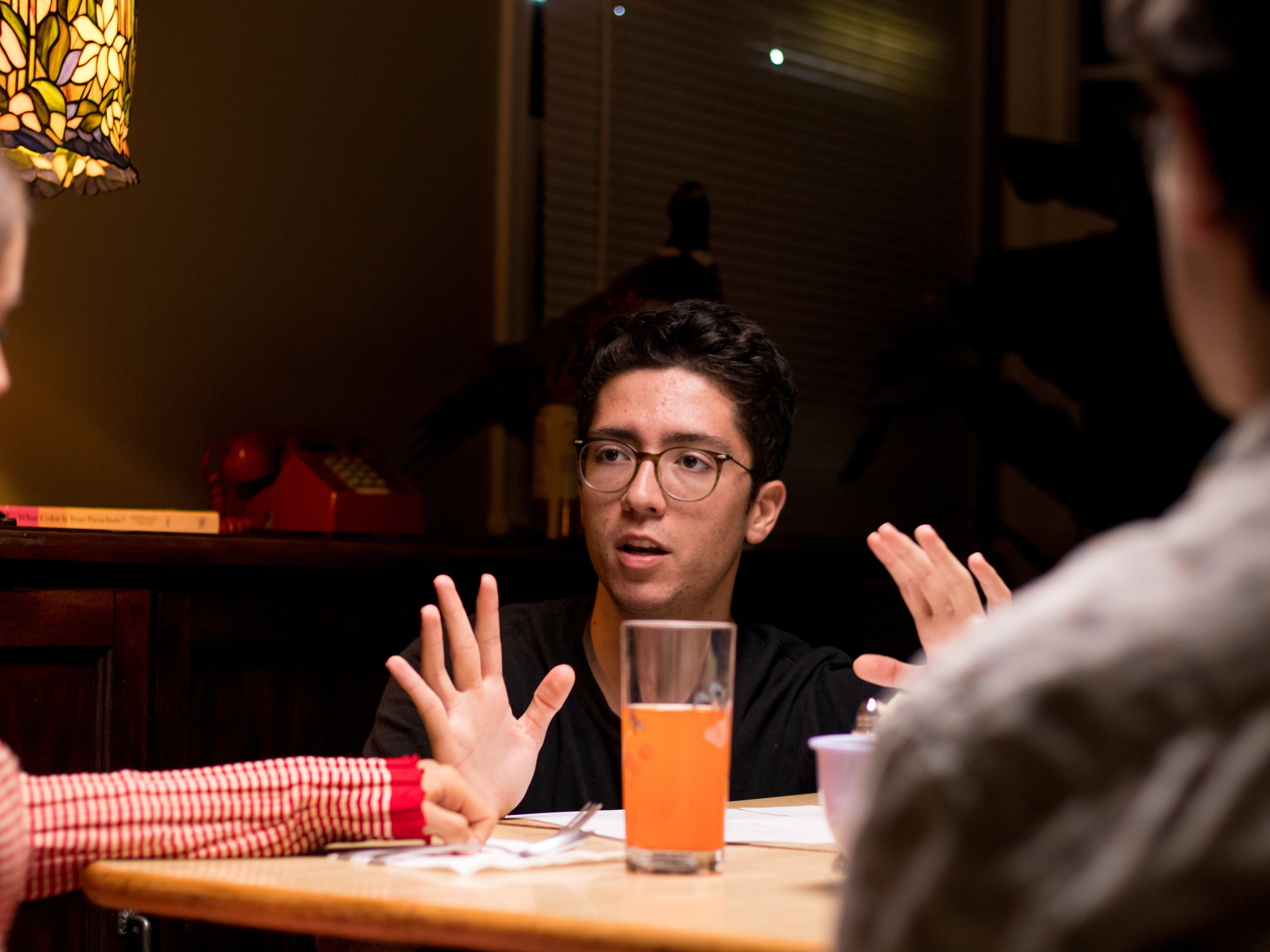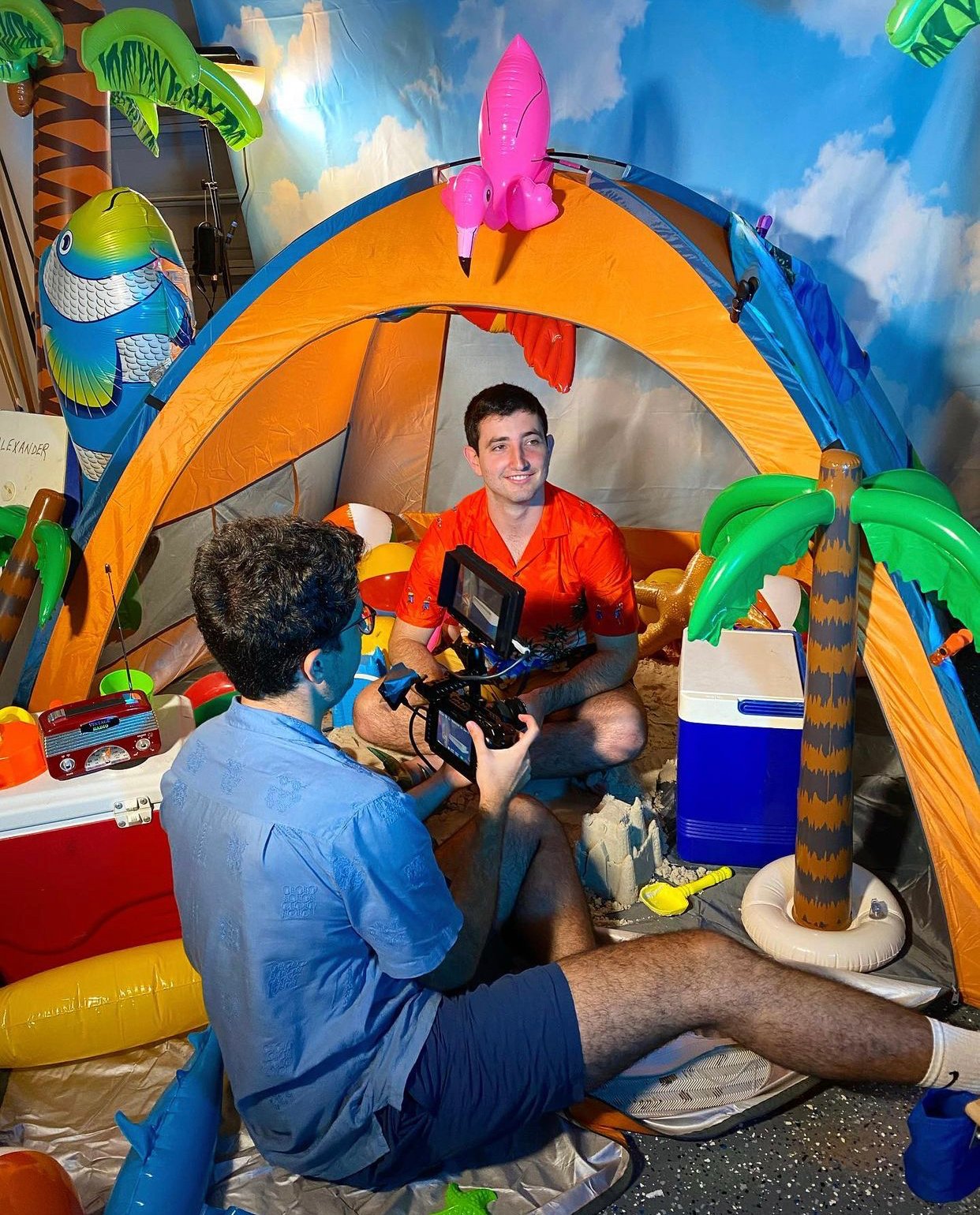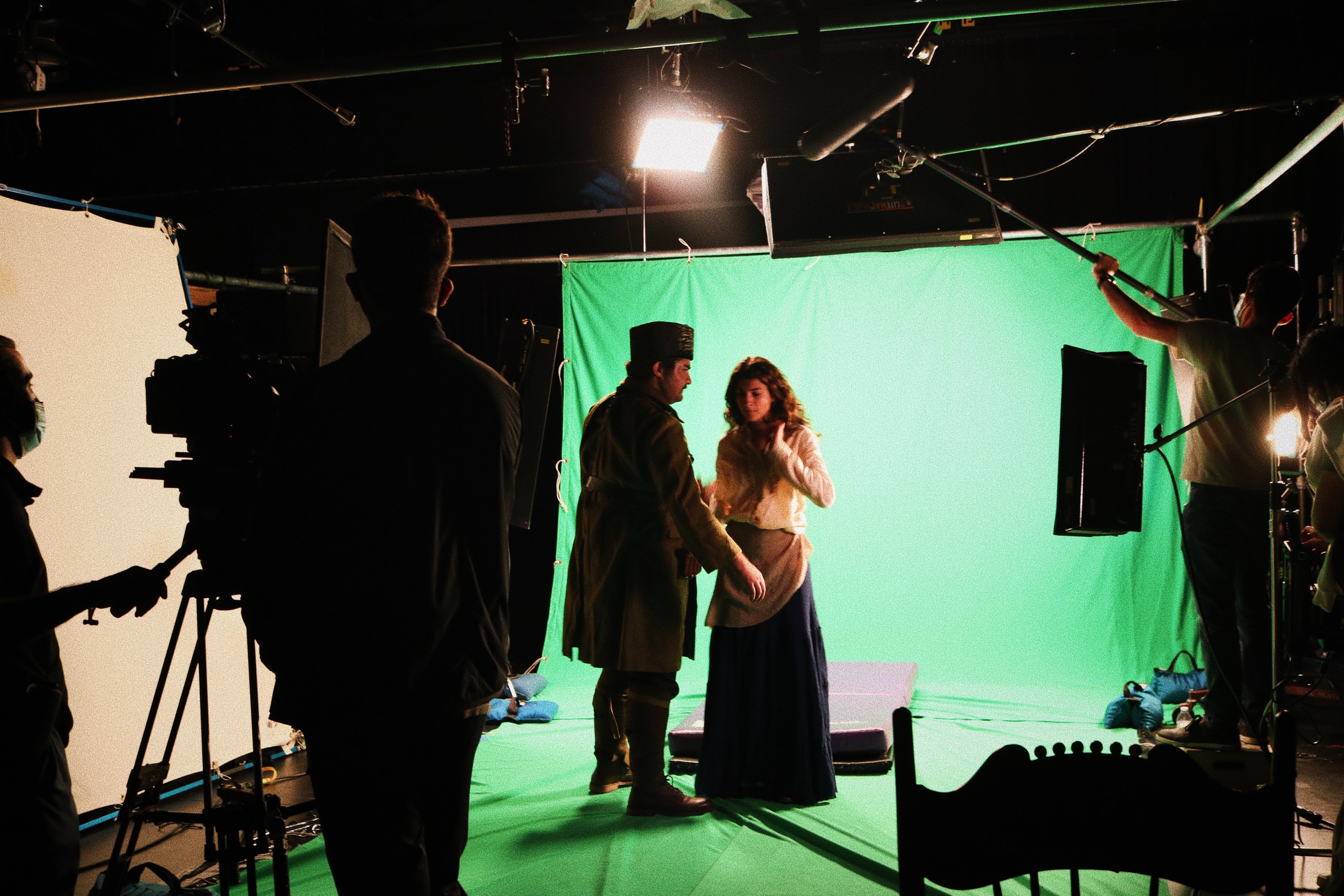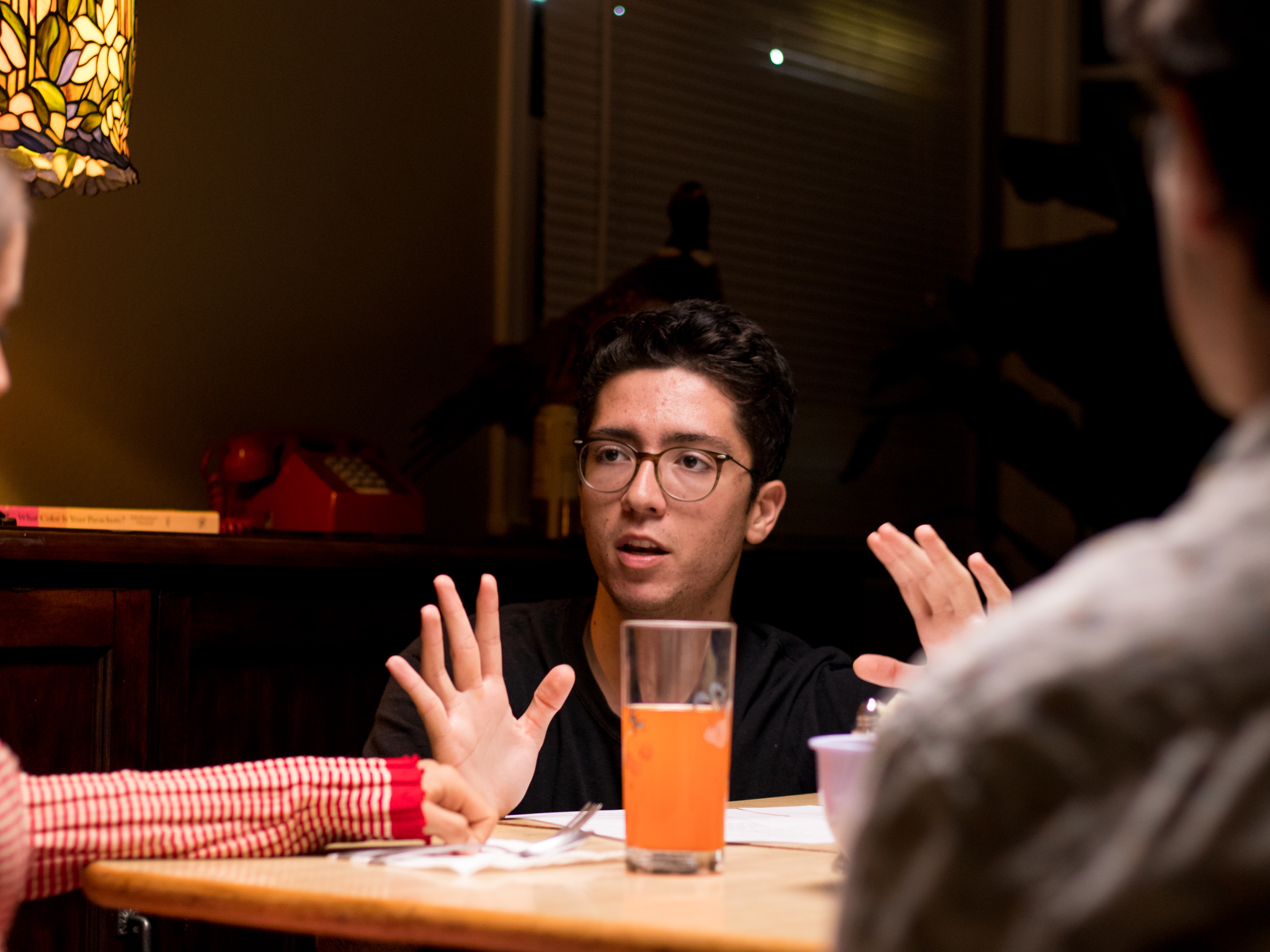As the grandson of an Armenian immigrant, Alexander Edep ’17 has drawn on his family’s painful history as a source of education and strength in his work as a filmmaker.
 Alexander Edep ’17 on set of his film "My House."
Alexander Edep ’17 on set of his film "My House."
A filmmaker since he was a freshman at Pine Crest Upper School, Alexander got his start as a participant in the digital media broadcasting program. Now a senior at the Dodge College of Film & Media Arts at Chapman University, Alexander continues to create both for his studies in film production, and through his own production company, Otherworld Studios, where he has primarily focused on music videos and branded content.
 Alexander Edep ’17 filming a music video for fellow alumnus Brett Koolik ’17.
Alexander Edep ’17 filming a music video for fellow alumnus Brett Koolik ’17.
“I like film [as a medium] because I like to tell stories,” said Alexander. “I love the idea of being able to entertain and educate—making people feel a certain way. A lot of my childhood was spent watching movies and learning empathy from others’ stories. I think films, especially documentaries, give a voice to the unheard and I have always liked that about film and filmmaking.”
The maternal side of Alexander’s family is Armenian, a cultural identity and heritage that he not only identifies with but has been a source of inspiration for his work. As a sophomore at Pine Crest, he debuted his first documentary “Save Kessab,” telling the story of his maternal grandfather’s hometown on the border between Syria and Turkey. While located in Syria, Kessab is mostly populated by ethnic Armenians and was the site of an attack by Jihadist rebels in 2014.
“I wanted to make the film for my family,” said Alexander. “I hadn’t really heard stories about the Armenian genocide and my family’s history before I made it. The film was a step for me in learning more about where I come from. What was happening in Kessab had happened before, and major news outlets weren’t covering the 2014 attack. We got a call from relatives who had to flee their homes—these attacks were happening and no one seemed to care.”
It took Alexander a year to create the short documentary. He completed it in 2015, which also happened to be the centennial anniversary of the Armenian genocide, when as many as 5,000 residents of Kessab were killed.
While his more recent projects are narratives, Alexander considers “Save Kessab” essential for his growth as a filmmaker.
“The values I gained from the year I spent making ‘Save Kessab’ are a major part of my development as a filmmaker,” said Alexander. "I want those same values to translate in my new film, raising awareness about the genocide, giving a voice to the unheard, and still serving as a source of entertainment and a tool to incite emotion and inspire empathy.”
While Alexander has not made another documentary since “Save Kessab,” he is once again drawing inspiration from his family for his thesis film “Forget Me Not.”
“This film is inspired by my great aunt Nouritza,” said Alexander. “I never got to meet her, but she survived the Armenian genocide. Her story always stuck with me because she survived that tragedy but never spoke about it. She wanted to move past it—she wanted it to be recognized, but her experience was so horrific that she didn’t want that pain spread among her family. My mom always saw Nouritza as a strong and happy woman, but she was traumatized. As she grew older, she experienced seizures and nightmares of being kidnapped. That is how we ultimately learned that she was still being affected by what happened, and we finally learned more about her story.”
 On the production set of "Forget Me Not"
On the production set of "Forget Me Not"
Alexander wanted to explore generational trauma, the idea that trauma isn’t just experienced by one person, but extends from one generation to the next.
“I have always been interested in generational trauma,” said Alexander, “and how pain carries on in a family. It’s in our blood. I wanted to tell her story and bring awareness to it. I also wanted to share the idea that not only do we carry familial pain with us, but we carry their strength in us too. We don’t let pain stop us. That is where I wanted to tell the story from; bringing awareness to the genocide but also highlighting both the pain and strength we inherit from our ancestors.”
Inspired by Nouritza, the short film is a thriller about a young man who has recently experienced the death of his father.
“He’s in an emotionally stagnant place when he is suddenly visited by apparitions of his ancestors,” said Alexander. “They reveal to him the trauma of the Armenian genocide, an event he didn’t know about, showing him that not only does the pain his family went through still affect him, but also their strength. In spite of his own depression, he realizes that through his ancestry, he can push through with this immeasurable strength.”
“Forget Me Not,” like “Save Kessab” and other more recent projects that Alexander has worked on have all come to life with the help of his peers and fellow Pine Crest alumni.
“Alexis Kesselman ’15, professionally known as Ida Rose, composed the score for ‘Save Kessab’ and for ‘Forget Me Not,’” said Alexander. “Seth ’17 and Jason Kelman ’17 helped me with my script. Ryan Felberbaum ’18 is engineering the sound. Justin Danzansky ’17 is a Steadicam operator here in Los Angeles and helped with filming. They’re all close friends of mine, and fortunately, we have always stayed in touch. I trust them and they are who I wanted to work with for this film. We met through PCTV and established our working relationship there. Our work ethic was really cultivated at Pine Crest in PCTV. These are always the people I trust with my work.”
Recently, Alexander created a film called “My House” a short, 10-minute film, which is a thriller about the possible dangers of AI technology. It was picked up by a production company for distribution and is available online.
As for what is next for Alexander, he looks forward to shifting his focus to his production company.
“If anyone needs freelance video work in Los Angeles, I’d love to collaborate!”
